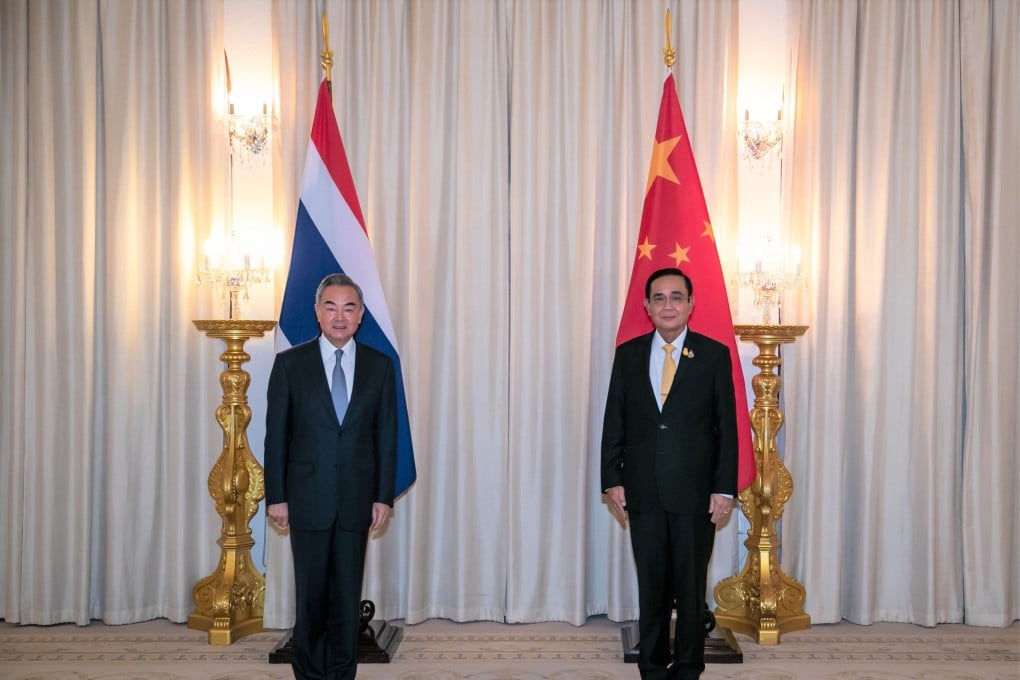As delays hit China-Thailand high speed railway, Bangkok counts the cost of paying its own way
- Thailand chose to forgo Chinese funding for a planned US$5.4 billion rail link, but money’s been tight since the pandemic hit its tourism-reliant economy
- Its holding up belt and road plans for a pan-Southeast Asia railway, but analysts say Bangkok’s still in Beijing’s good books – as a recent submarine deal shows

The daily routine started in December following the completion of the rail link that took five years to build.

But in Thailand, it could be at least a decade before Vientiane and the Thai capital Bangkok, situated more than 600km apart, could be connected via the high speed railway.
The Thai section comprises three parts: the 253km Bangkok-Nakhon Ratchasima section, the 356km Nakhon Ratchasima-Nong Khai section and a 16km track connecting Nong Khai to Vientiane. The Thai government expects the first phase to be operational in 2026.
That only came after lengthy years-long talks between Thailand and China that began long before Prayuth took power in a 2014 coup. The agreements were publicly scrutinised at the time because China reportedly requested the right to manage the land around the railway station, an issue which could affect Thai sovereignty.